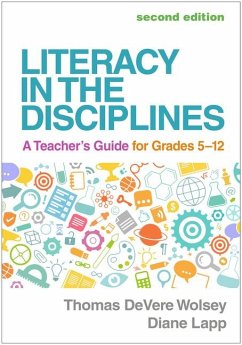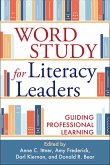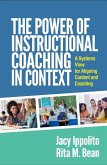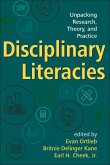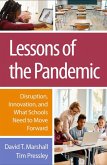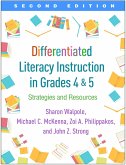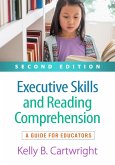Thomas DeVere Wolsey (United Stat The American University in Cairo, Diane Lapp (San Diego State University, Health Science High and Mid
Literacy in the Disciplines
A Teacher's Guide for Grades 5-12
Thomas DeVere Wolsey (United Stat The American University in Cairo, Diane Lapp (San Diego State University, Health Science High and Mid
Literacy in the Disciplines
A Teacher's Guide for Grades 5-12
- Broschiertes Buch
- Merkliste
- Auf die Merkliste
- Bewerten Bewerten
- Teilen
- Produkt teilen
- Produkterinnerung
- Produkterinnerung
This successful guide--now in a revised and expanded second edition--gives teachers effective strategies to support adolescents' development of relevant literacy skills in specific disciplines.
Andere Kunden interessierten sich auch für
![Word Study for Literacy Leaders Word Study for Literacy Leaders]() Word Study for Literacy Leaders52,99 €
Word Study for Literacy Leaders52,99 €![Understanding and Using Reading Assessment, K-12 Understanding and Using Reading Assessment, K-12]() Peter AfflerbachUnderstanding and Using Reading Assessment, K-1252,99 €
Peter AfflerbachUnderstanding and Using Reading Assessment, K-1252,99 €![The Power of Instructional Coaching in Context The Power of Instructional Coaching in Context]() Jacy IppolitoThe Power of Instructional Coaching in Context49,99 €
Jacy IppolitoThe Power of Instructional Coaching in Context49,99 €![Disciplinary Literacies Disciplinary Literacies]() Evan OrtliebDisciplinary Literacies53,99 €
Evan OrtliebDisciplinary Literacies53,99 €![Lessons of the Pandemic Lessons of the Pandemic]() David T. MarshallLessons of the Pandemic33,99 €
David T. MarshallLessons of the Pandemic33,99 €![Differentiated Literacy Instruction in Grades 4 and 5 Differentiated Literacy Instruction in Grades 4 and 5]() Sharon Walpole (United States University of Delaware)Differentiated Literacy Instruction in Grades 4 and 551,99 €
Sharon Walpole (United States University of Delaware)Differentiated Literacy Instruction in Grades 4 and 551,99 €![Executive Skills and Reading Comprehension Executive Skills and Reading Comprehension]() Kelly B. CartwrightExecutive Skills and Reading Comprehension58,99 €
Kelly B. CartwrightExecutive Skills and Reading Comprehension58,99 €-
-
-
This successful guide--now in a revised and expanded second edition--gives teachers effective strategies to support adolescents' development of relevant literacy skills in specific disciplines.
Hinweis: Dieser Artikel kann nur an eine deutsche Lieferadresse ausgeliefert werden.
Hinweis: Dieser Artikel kann nur an eine deutsche Lieferadresse ausgeliefert werden.
Produktdetails
- Produktdetails
- Verlag: Guilford Publications
- 2 ed
- Seitenzahl: 282
- Erscheinungstermin: 26. Juli 2024
- Englisch
- Abmessung: 251mm x 175mm x 18mm
- Gewicht: 532g
- ISBN-13: 9781462555307
- ISBN-10: 1462555306
- Artikelnr.: 70362233
- Herstellerkennzeichnung
- Libri GmbH
- Europaallee 1
- 36244 Bad Hersfeld
- gpsr@libri.de
- Verlag: Guilford Publications
- 2 ed
- Seitenzahl: 282
- Erscheinungstermin: 26. Juli 2024
- Englisch
- Abmessung: 251mm x 175mm x 18mm
- Gewicht: 532g
- ISBN-13: 9781462555307
- ISBN-10: 1462555306
- Artikelnr.: 70362233
- Herstellerkennzeichnung
- Libri GmbH
- Europaallee 1
- 36244 Bad Hersfeld
- gpsr@libri.de
Thomas DeVere Wolsey, EdD, teaches graduate courses in research and literacy and leads professional development for teachers throughout the United States, including on the Hopi Reservation in Arizona, as well as in Egypt, Guatemala, Mexico, China, and elsewhere. He is the author or coauthor of numerous books for teachers and teacher educators, most recently on the topic of teaching refugees and displaced students. Dr. Wolsey has developed training materials for the California Department of Education, TextProject, San Diego State University, and other institutions and programs. His research and writing explore the intersections of literacy and technology, middle grades and secondary literacy practices, teacher preparation, and green school design. Diane Lapp, EdD, is Distinguished Professor Emerita of Education in the Department of Teacher Education and Lecturer in the Department of Educational Administration at San Diego State University. She has taught elementary, middle, and high school and currently serves as an Instructional Coach at Health Sciences High and Middle College in San Diego. Dr. Lapp's research and instruction focus on issues related to struggling readers and writers who live in economically deprived urban settings, and their families and teachers. Widely published, she has received the Outstanding Teacher Educator of the Year Award from the International Literacy Association (ILA), as well as the William S. Gray Citation of Merit, ILA's highest individual honor. Dr. Lapp is a member of the Reading Hall of Fame and the California Reading Hall of Fame.
I. The Literacy of the Disciplines
1. What Is Disciplinary Literacy?
2. What Are the Literacy Demands of Experts in the Disciplines?: Talking
with Scientists, Historians, Mathematicians, Authors of Fiction, Musicians,
Artists, Athletes, and Technical Experts
3. Literacy in Civic, Professional, and Personal Life
II. Literacy Instruction in the Disciplines
4. Saying It Well: Instruction That Supports Academic Language Development
in the Disciplines
5. Choosing the Right Words: Instruction That Supports Academic Vocabulary
Use in the Disciplines
6. Arguing It Well: Instruction That Supports Communication in the
Disciplines
7. Reading It Carefully: Instruction That Supports Reading in the
Disciplines
8. Reading It Closely: Instruction That Supports Close Reading in the
Disciplines
9. Writing It Down: Instruction That Supports Writing in the Disciplines
III. Routines That Support Learning in the Disciplines
10. Organizing It Well: Using Organizational Structures in the Disciplines
11. Presenting It Well: Using Multimodal Tools in the Disciplines
12. Assessing It Well: Assessment That Supports Student Learning in the
Disciplines
Conclusion. What's Next for Literacy in the Disciplines?: Going Beyond
College and Career Readiness
References
Index
1. What Is Disciplinary Literacy?
2. What Are the Literacy Demands of Experts in the Disciplines?: Talking
with Scientists, Historians, Mathematicians, Authors of Fiction, Musicians,
Artists, Athletes, and Technical Experts
3. Literacy in Civic, Professional, and Personal Life
II. Literacy Instruction in the Disciplines
4. Saying It Well: Instruction That Supports Academic Language Development
in the Disciplines
5. Choosing the Right Words: Instruction That Supports Academic Vocabulary
Use in the Disciplines
6. Arguing It Well: Instruction That Supports Communication in the
Disciplines
7. Reading It Carefully: Instruction That Supports Reading in the
Disciplines
8. Reading It Closely: Instruction That Supports Close Reading in the
Disciplines
9. Writing It Down: Instruction That Supports Writing in the Disciplines
III. Routines That Support Learning in the Disciplines
10. Organizing It Well: Using Organizational Structures in the Disciplines
11. Presenting It Well: Using Multimodal Tools in the Disciplines
12. Assessing It Well: Assessment That Supports Student Learning in the
Disciplines
Conclusion. What's Next for Literacy in the Disciplines?: Going Beyond
College and Career Readiness
References
Index
I. The Literacy of the Disciplines
1. What Is Disciplinary Literacy?
2. What Are the Literacy Demands of Experts in the Disciplines?: Talking
with Scientists, Historians, Mathematicians, Authors of Fiction, Musicians,
Artists, Athletes, and Technical Experts
3. Literacy in Civic, Professional, and Personal Life
II. Literacy Instruction in the Disciplines
4. Saying It Well: Instruction That Supports Academic Language Development
in the Disciplines
5. Choosing the Right Words: Instruction That Supports Academic Vocabulary
Use in the Disciplines
6. Arguing It Well: Instruction That Supports Communication in the
Disciplines
7. Reading It Carefully: Instruction That Supports Reading in the
Disciplines
8. Reading It Closely: Instruction That Supports Close Reading in the
Disciplines
9. Writing It Down: Instruction That Supports Writing in the Disciplines
III. Routines That Support Learning in the Disciplines
10. Organizing It Well: Using Organizational Structures in the Disciplines
11. Presenting It Well: Using Multimodal Tools in the Disciplines
12. Assessing It Well: Assessment That Supports Student Learning in the
Disciplines
Conclusion. What's Next for Literacy in the Disciplines?: Going Beyond
College and Career Readiness
References
Index
1. What Is Disciplinary Literacy?
2. What Are the Literacy Demands of Experts in the Disciplines?: Talking
with Scientists, Historians, Mathematicians, Authors of Fiction, Musicians,
Artists, Athletes, and Technical Experts
3. Literacy in Civic, Professional, and Personal Life
II. Literacy Instruction in the Disciplines
4. Saying It Well: Instruction That Supports Academic Language Development
in the Disciplines
5. Choosing the Right Words: Instruction That Supports Academic Vocabulary
Use in the Disciplines
6. Arguing It Well: Instruction That Supports Communication in the
Disciplines
7. Reading It Carefully: Instruction That Supports Reading in the
Disciplines
8. Reading It Closely: Instruction That Supports Close Reading in the
Disciplines
9. Writing It Down: Instruction That Supports Writing in the Disciplines
III. Routines That Support Learning in the Disciplines
10. Organizing It Well: Using Organizational Structures in the Disciplines
11. Presenting It Well: Using Multimodal Tools in the Disciplines
12. Assessing It Well: Assessment That Supports Student Learning in the
Disciplines
Conclusion. What's Next for Literacy in the Disciplines?: Going Beyond
College and Career Readiness
References
Index

